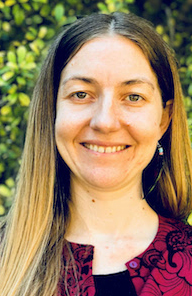
By Jessica Hitch
Conflict is eternal and inevitable. Only the manner in which we manage it is our choice.
The global crisis caused by coronavirus offers an opportunity to cultivate more peace in our world. As we face this challenge together, it is clear that the human race is one race and that we need to work together to create the best future for us all.
The coronavirus does not discriminate based on nationality, religion, gender, age, class, or any other distinction, even though societal conditions may result in disparate numbers infected and affected by this plague. Its spread highlights global inequality and can seem extremely bleak.
But coronavirus has not undermined the compassion humans feel despite the hardships we face at this time. Coronavirus unites us and can inspire us to tackle global challenges like poverty, violence, racism, greed, labor rights, healthcare, and climate change. It is now abundantly clear that we are one human family, and we rely on the same basic resources—drinking water, food, and clean air—to survive.
Coronavirus provides a unique opportunity to innovate and drastically improve our way of relating to the planet and each other. Although confronting COVID-19 is fraught with uncertainty, it is clear that slowing down and reassessing our true needs has provided the earth an opportunity to reset and has given us all a chance to get back in touch with what truly matters.
Wildlife has returned to its natural habitat, and air quality is improving worldwide. Although terrible, this situation offers abundant opportunities to grow and heal together as a human family. We can literally see a better future, if we choose it.
In this time of chaos, it is natural to confront fears of death, illness, aging, and the unknown. One personal helpful tool is mindfulness practices to bring our awareness into the present moment and cultivate peace within our own bodies, hearts, and minds. Much of what we have come to depend on as part of our daily lives is no longer available to us. Still, it is possible to create peace within ourselves.
No matter what religious or spiritual beliefs we have, it is possible to use the ancient teachings of the Buddha to find inner peace even in times of uncertainty, loss, or chaos. In mindfulness practice, you bring your attention regularly to your breath, and allow yourself to be aware that you are breathing. I have practiced mindfulness for more than a decade and have found that meditation helps me deal with sorrows from the past and anxieties about the future.
Many people have lost their jobs and are facing scarcity in meeting basic needs. We are experiencing changes to how we socialize and relate to others. It is natural to have a wide variety of feelings about this, but the Buddha teaches that we can experience joy even in the toughest of times.
I do not proselytize for or against any religion, only offer a technique that others from any religion—or none—can use. Holocaust survivor Viktor Frankl could not control his captors, but he could build the will to live by focusing on the meaning the experience brought. When all other freedoms were taken away, Frankl still commanded the power of his heart and mind to find courage, strength, and resilience.
Coronavirus has shown that there is so much we don’t control in the world. But it is still possible to be joyful in the here and now simply by observing our breath and learning techniques to care for ourselves each day. Practicing mindfulness reveals that we can find joy within that does not rely on external conditions. Practicing mindfulness also builds the energy of compassion, which is so desperately needed at this time as we all seek to heal our universal human family.
There is so much that we don’t know about the future and so much that we don’t control in the present, but working together, I have faith that humankind can—and hope that we choose to—find deep healing and transformation and become stronger and better than ever.


Be the first to comment